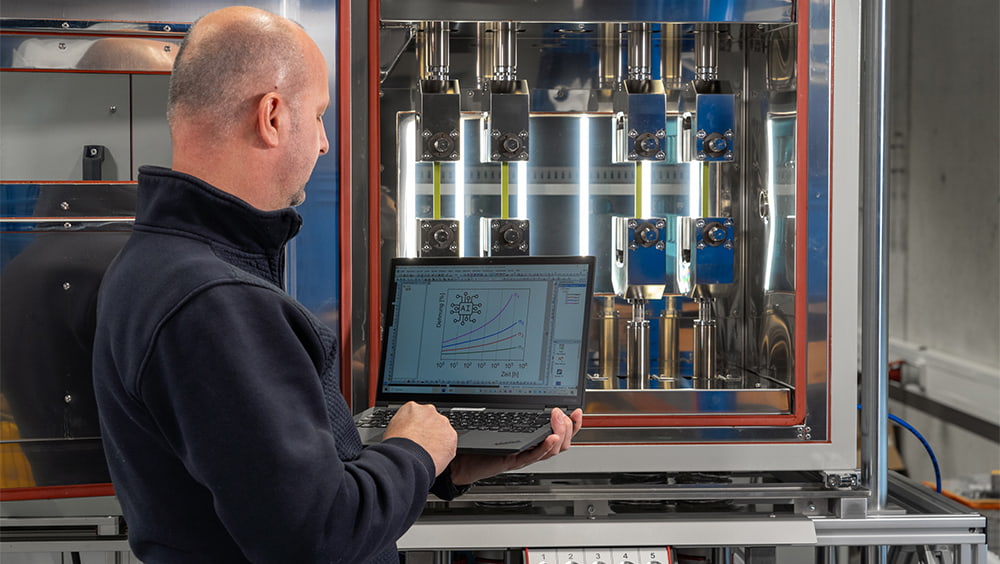How artificial intelligence will supplement patchy crawl data
Material databases often provide only incomplete creep data for plastics. The SKZ Plastics Center is therefore developing new approaches in a research project to close these gaps with the help of artificial intelligence (AI) without additional experimental long-term tests.

Use of machine learning models to predict the creep behavior of plastics (Photo: Luca Hoffmannbeck, SKZ)
SKZ is launching a new research project on AI-supported creep prediction for plastics
In July 2024, the IGF research project “New approaches to AI-supported creep prediction for plastics with incomplete data” (project number: 01IF23351N) started. The aim of the two-year project is to develop suitable strategies for using AI to supplement incomplete creep data in material databases without additional experimental long-term tests. To this end, the two research centers of the SKZ in Würzburg and the Gesellschaft zur Förderung angewandter Informatik (GFal) in Berlin are combining their expertise in the determination and characterization of material properties and machine learning (ML) as a subfield of AI. The project is supported by representatives from currently 28 companies.
Efficient use and completion of incomplete data using AI
Material databases such as CAMPUS only occasionally provide creep data, and often this does not cover the desired temperature or time range. It is unrealistic to expect to be able to close these gaps by means of corresponding long-term tests, as this would be far too costly in terms of time and money. Furthermore, the long-term mechanical properties depend on a variety of influencing factors (e.g. load level and duration, temperature, humidity). People who design or use plastic parts are thus faced with the problem that insufficient consideration of creep effects can lead to premature failure of plastic components.
In the research project, existing data is therefore to be analyzed and patterns recognized by integrating AI in order to supplement missing values precisely without additional experimental effort. The trained ML models should be able to make predictions for creep behavior under new boundary conditions not represented in the material database (e.g. further temperatures). Ideally, the prediction model will be able to function without any long-term data from creep tests and will only require input data in the form of short-term characteristic values that can be easily determined.
AI as a tool for “small data”
In the plastics industry, AI has so far been used mainly in the area of process data analysis, where large amounts of data (”big data“) are usually generated. By contrast, comparatively little data is available for the analysis of material data (”small data"), with the gaps mentioned for certain characteristic values such as creep curves. Therefore, a major challenge of the project is to develop innovative approaches for processing small data. This includes expanding the database (synthetic measurement data, data augmentation and data imputation) to create a sufficient basis for AI training, and selecting and adapting suitable ML models that are specifically tailored to characterizing material properties. The AI's ability to recognize complex patterns should be used to complete existing material data and transfer it to other types of plastic.
“With this research project, we want to tap into the enormous potential of AI for the plastics industry and at the same time significantly reduce the experimental effort involved in generating creep data,” explains Dr.-Ing. Kurt Engelsing, Expert Engineer at SKZ. ”This will not only increase efficiency, but also strengthen the innovative power of the industry.”
More information about the SKZ research area component properties
More information about the GFaI


